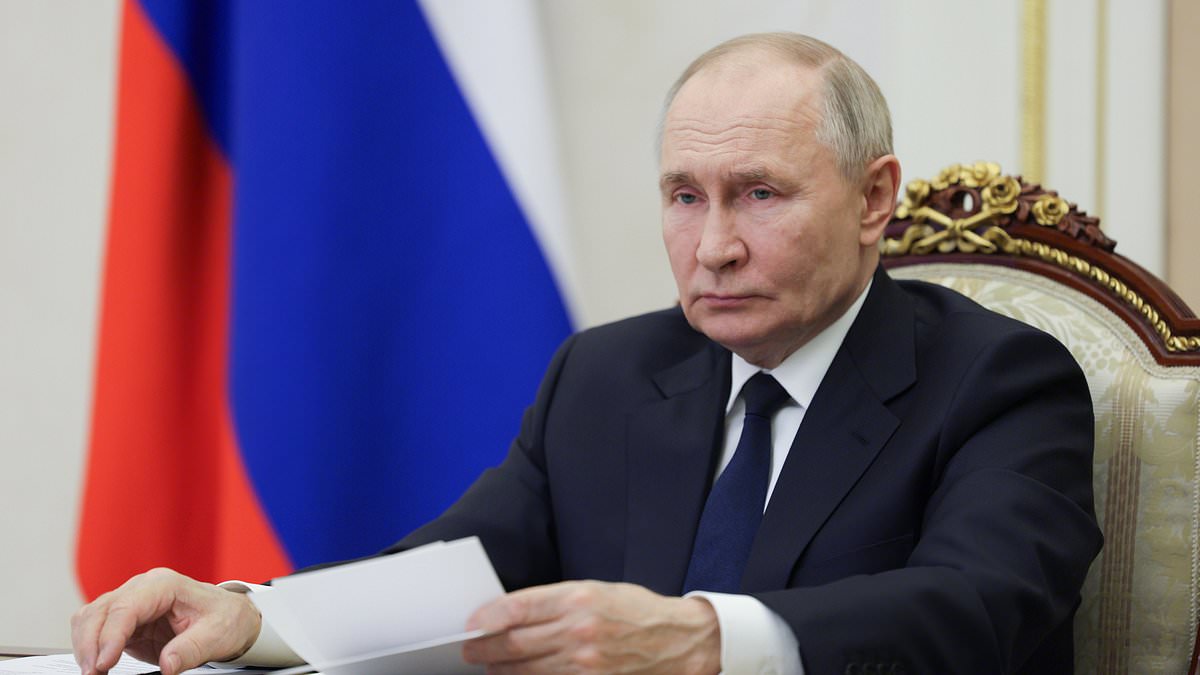Russia will be set to fight a major war in Europe in just five years and is expecting to get away with attacking NATO, Danish intelligence has warned.
A report from Denmark’s intelligence service (FE) outlines three potential scenarios for Russian military aggression, warning that if the war in Ukraine ends or is frozen, Moscow will be able to redirect significant military resources, posing a direct threat to NATO.
The intelligence analysis, published after US President Donald Trump returned to the White House with a stated goal of negotiating peace in Ukraine, suggests that under these conditions, Russia’s military build-up could rapidly escalate.
The report outlines a chilling timeline of growing threats from Moscow, starting from as soon as just six months time.
Within six months, the analysis claims Russia could be capable of fighting a local war in a country bordering its territory.
Within two years, Russia could pose a credible threat to one or more NATO countries, potentially sparking a regional conflict in the Baltic Sea region.
And within five years, Russia could be ready for a full-scale war in Europe – without the need for American support or intervention.
Denmark’s intelligence chief, Anja Dalsgaard Nielsen, told Danish newspaper Jyllands-Posten that there is currently no concrete Russian threat to Denmark, but the situation is shifting rapidly.
‘We see an increased willingness on the Russian side to challenge NATO, and we see an American administration that is focused on ending the fighting in Ukraine,’ she said.
One of the most concerning elements of the report is the suggestion that Russia’s stance in Ukraine has shifted from reconstruction to an intensified military build-up, indicating that the Kremlin is preparing for future conflicts.
While this does not mean Russia has made a final decision to attack NATO, it does suggest Moscow is building the capacity to make that decision if it chooses, according to FE’s analysis.
‘The economic and material support from China and the support from North Korea and Iran with troops and weapons systems, respectively, are increasingly contributing to freeing up resources for Russia’s rearmament towards NATO’, the intelligence service states.
Anders Puck Nielsen, a military expert from the Danish Defense Academy, told TV2 that NATO’s deterrence has been weakened, potentially making Russia believe it could attack the alliance and get away with it.
But Donald Trump has cast doubt on whether the United States will support European NATO countries in a war against Russia.
‘If NATO’s deterrence is undermined in Europe, Russia may believe they could launch an attack on NATO and achieve a good result,’ he warned.
It comes after Trump revealed he needed to buy Greenland from Denmark, as America needs the island for security reasons.
Denmark’s prime minister has said repeatedly Greenland is ‘not for sale’ but that hasn’t stopped Trump’s fixation on it.
‘I think we’re going to have it,’ he has said. He also claims Greenland’s 57,000 residents ‘want to be with us’ although many on the island say otherwise.
With Trump’s foreign policy direction still unclear and NATO leaders increasingly concerned about European security, the report serves as a stark warning that the next few years could be critical in determining the balance of power between Russia and the West.
Senior researcher at the Denmark Institute for International Studies, Flemmings Splidsboel, told TV2 that Russia ‘certainly’ sees that there are ‘big gaps in NATO cooperation’ today as a result of the situation around Greenland.
‘We had a situation where two major NATO countries, France and Germany, are defending a third NATO country, Denmark, against a fourth, the United States. And that has done great damage to the cooperation’, he explained.
Trump on Saturday claimed to have had a conversation with Russian President Vladimir Putin about ending the war in Ukraine.
When asked about the talks, Trump told reporters ‘we’re making progress’ and said he expects to speak more with the Russian leader, and when the time is right, will have a physical meeting with him.
Kremlin spokesman Dmitry Peskov told the TASS state news agency that ‘many different communications are emerging’.
‘These communications are conducted through different channels,’ Peskov said when asked by TASS to comment directly on a New York Post report.
‘I personally may not know something, be unaware of something. Therefore, in this case, I can neither confirm nor deny it.’
